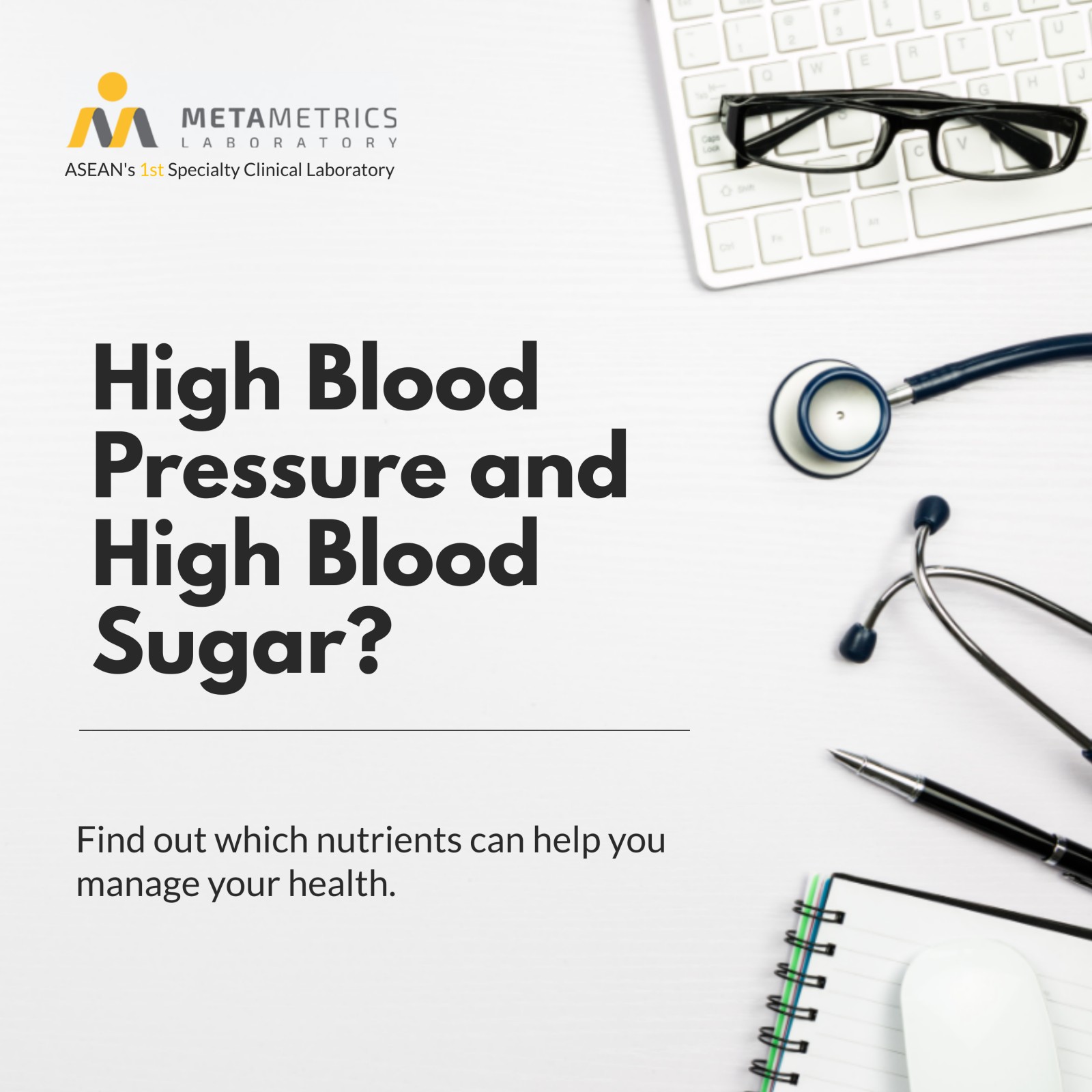High Blood Pressure? and High Blood Sugar?

High Blood Pressure and High Blood Sugar? These may be caused by Nutrient Imbalances.
Do you experience high blood pressure and high blood sugar? Are you pre diabetic or a candidate for hypertensive disorders? If so, this article may help you.
With our current lifestyle- lack of physical activities, poor diet, stress and coping mechanisms, we are becoming more prone to lifestyle related diseases. Currently one of the leading cause of death in the Philippines is still cardiovascular related diseases- followed by cancer and cerebrovascular diseases, which is often caused by complications of diabetes.
As we are advised by our health care practitioners to take maintenance medications and adjust our diet- reduce sugar intake and carbohydrates to be particular and increase physical activity, setting aside that nutrients play a critical role in managing our blood sugar as well as our blood pressure.
New studies show that Vitamin D, B9, B12, Magnesium may help us in the management of our heart and endocrine health. Folate and Cobalamin (B9 & B12) reduces the amino acid called homocysteine which can damage our arteries.
Vitamin D ensures the absorption of calcium and phosphorus- preventing the formation of calcium in our arteries that can cause blockage that may lead to stroke and vascular problems. It also helps to improve insulin sensitivity and reduces the inflammation in our body.
Magnesium helps lower general cholesterol levels while raising high-density lipoprotein (HDL) or good cholesterol while reducing the risk of abnormal heartbeats and severity of angina. Furthermore, Magnesium regulates blood sugar levels.
These nutrients may help us in managing our health, however toxic levels of Vitamin D, B9, B12 and Magnesium is also possible. Too much Vitamin D may cause bone pains, liver failure or it may worsen your current condition. B9, B12 and Magnesium toxicity may also cause hypo reactive states in our body.
The key is here is Optimal level of these micronutrients that may help us regulate our blood sugar and heart. Proper Diet adjustment and supplementation with the guidance of your attending physician and nutritionist may be done to address nutritional imbalances. Check your nutrient levels prior adjusting your diet and starting supplementation.



